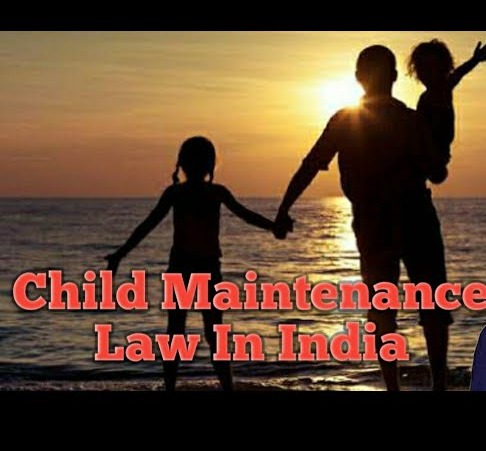Abhay M. Thipsay, J.@mdashRule. By consent, Rule made returnable forthwith. The learned Additional Public Prosecutor waives service on behalf of respondents. By consent, heard finally forthwith. The petitioner is one of the accused in R.C.C. No. 128/2008 pending before the Judicial Magistrate, First Class, Udgir. There are total 20 accused in the said case, which is in respect of offences punishable u/s 143 of the Indian Penal Code (IPC), section 353 of IPC, section 341 of IPC, section 427 of IPC and section 332 of IPC and section 135 of the Bombay Police Act. The case was originally registered against about 75 to 100 unknown persons, but the Investigating Agency after investigation could file charge-sheet only against 20 of them. Out of these 20 only the petitioner and two or three more are attending the Court. The charge-sheet has been filed in the year 2008 and since then the petitioner has been remaining present before the Court on all the dates of hearing. However, as the other accused do not remain present, the case is not proceeding further. Troubled by this situation, the petitioner on 04.12.2012 made an application (Exhibit 105) before the learned Magistrate praying that the case of the petitioner be separated in the interest of justice, and that, the petitioner be tried separately. To this application, the Assistant Public Prosecutor, Incharge of the matter signified his no objection. It appears that that application was pending for one year before the Magistrate, which ultimately came to be rejected by him, by an order dated 03.12.2013. The petitioner is aggrieved by the said order and has approached this Court invoking its power under Article 227 of the Constitution of India.
2. I have heard Mr. S.B. Pulkundwar, the learned Additional Public Prosecutor for the respondents. I have also heard the respondent no. 2, who is Investigating Officer in the matter.
3. Neither the learned Additional Public Prosecutor nor the respondent no. 2 has any objection for separating the trial of the petitioner and for proceeding with the case.
4. I have gone through the impugned order. The impugned order appears to be suffering from total non-application of mind.
5. The learned Magistrate observed that ''the case was triable as a Warrant Case and not a Summons Case'', and that, ''therefore, there was no provision for enabling the Court to proceed in absence of the accused and only in presence of his Advocate, as such procedure could be adopted only in summons cases''. He further observed that therefore, the provisions of section 317(2) of the Code of Criminal Procedure (hereinafter referred to as "the Code") were not applicable to the instant case.
6. These observations were strange for at least two reasons. The first is that section 317 does not deal with ''separation of trials'' which is what the petitioner wanted; and therefore what made the Magistrate discuss the applicability of section 317 of the Code in the context of the petitioner''s Application (Exhibit 105) is difficult to understand. The petitioner had not made any reference to the provisions of section 317(2) of the Code. Moreover section 317 of the Code, which is found in Chapter XXIV of the Code titled as "General Provisions As To Inquiries and Trials", applies to all the inquires and trials under the Code.
7. Secondly, the Magistrate has not comprehended what was the grievance of the petitioner. It was that the case was not proceeding further because the presence of the other accused in the case could not be procured. The grievance of the petitioner was that he has been remaining present before the trial Court since 2008, and that, still the trial could not make any progress. It was not possible to the Court to make any progress because of the absence of the other accused, and therefore, in order to prevent undue hardship and harassment of the petitioner, the petitioner had prayed for separation of the trial. This aspect was not comprehended at all, by the learned Magistrate.
8. It may be recalled that the prosecution had no objection for separating the trial of the petitioner. In fact that appeared to be the only solution in the given situation. Part B of Chapter XVII of the Code deals with Joinder of Charges. Section 218 lays down the general rule that for every distinct offence of which any person is accused, there shall be a separate charge and every such charge shall be tried separately. The sections that follow section 218, make a joinder of charges, or of the accused persons, possible. Thus, the normal rule for trials is that there should be a separate trial in respect of each offence and each accused. It is only because of the enabling provisions in the Code that a joinder of charges or of the accused become possible. The law is that a joint trial may be held and not that it must be held. A court is never obliged to hold a joint trial. Even where it can, it is open to it to hold separate trials for the various offences and offenders. Under the Code, separate trials are held under the general rule and joint trials have only been permitted under certain circumstances.
9. So far as the joinder of accused persons is concerned, section 223 is the only section which deals with the joint trial of more than one person. The section is merely an enabling provision and does not in any way affect the discretion of the Court. Because of permissive nature of the said provision, the Court retains a discretion to try certain persons either jointly or separately. Needless to say that such discretion should be exercised judicially.
10. When the other accused were not being found and when, therefore, the trial was not being proceeded with further, there was absolutely no justification for not separating the trial of the petitioner (and any other accused, who might be available). In the impugned order, the Magistrate observed that it would be against the interest of justice to separate the trial of the petitioner. It is not possible to agree with this observation. As a matter of fact, it would be totally unjust, unreasonable and oppressive to insist that the petitioner must keep on attending the Court for an indefinite period, and that, though he is ready to proceed with the trial, though the prosecution is ready to proceed with the trial, still the trial of the petitioner should not be proceeded with by separating it from the case of the other accused, whose presence was not being procured.
11. The impugned order is improper and not judicious. It would be, therefore, proper to set it aside and direct the Magistrate to allow the application (Exhibit 105) and proceed further in the case in accordance with law.
12. The Petition is allowed in terms of prayer clause ''C''.
The learned Magistrate shall proceed further with the case expeditiously, and in any case, dispose it of within a period of nine months from today; and in accordance with law.
The Rule is made absolute in the aforesaid terms.

